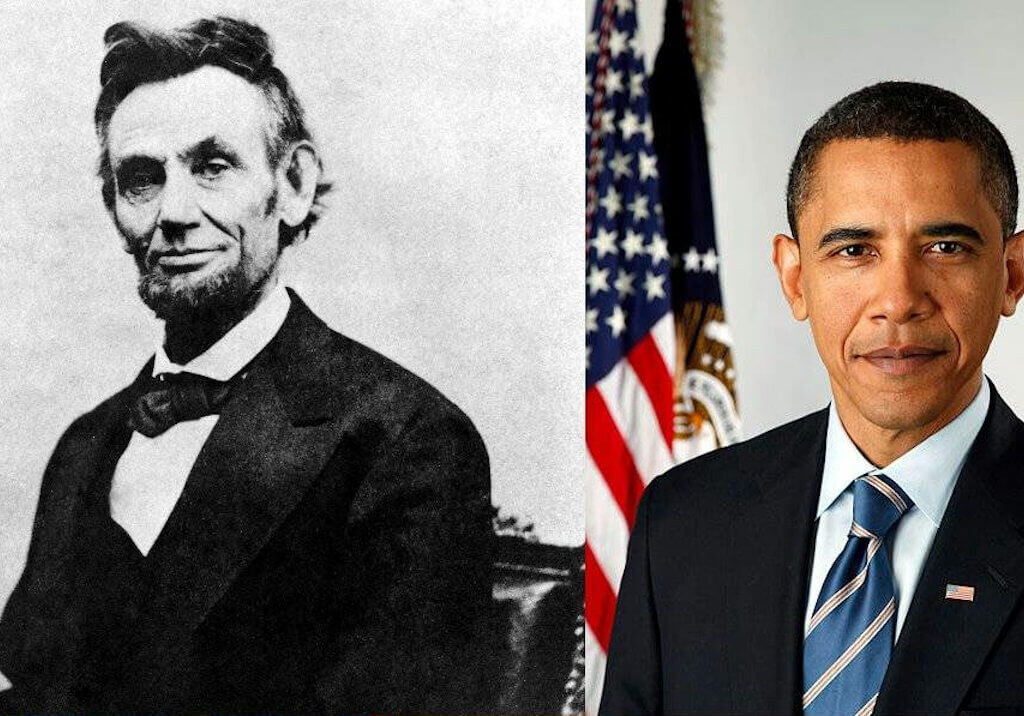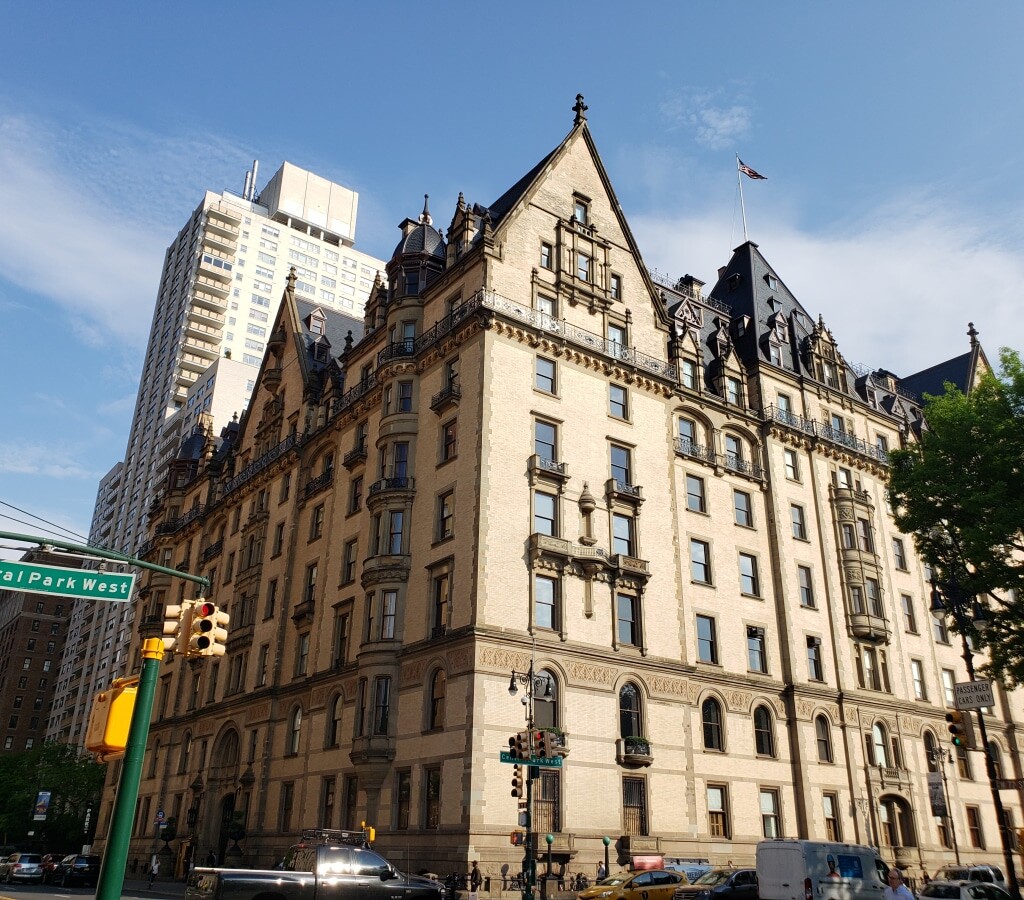Did you know that Abraham Lincoln and Barack Obama, though separated by more than a century, share surprising coincidences? From their political careers to their symbolic gestures, discover how these two iconic U.S. presidents are connected in unexpected ways.
Coincidences Between Lincoln and Obama: Two Presidents with Parallel Paths
Many historians and experts believe that subsequent presidents have looked to Abraham Lincoln as a role model.
Lincoln, who led the nation through one of its most turbulent periods and successfully overcame the crisis, remains relevant hundreds of years later.
This relevance has been reinforced by Steven Spielberg’s film focusing on the tumultuous final months of his presidency.
Barack Obama, on his way to the White House, took every opportunity to emulate Lincoln, one of the greatest presidents in U.S. and world history.
However, scholars have found similarities between Obama and Lincoln that go beyond examples, reaching surprising coincidences.
Although some consider these similarities to be “a bit forced” and label them as “urban legends,” here are some of these similarities for you to form your own opinion.
Senators in Their First Term
Abraham Lincoln and Barack Obama shared the experience of serving as senators in their first term, representing the state of Illinois. Both launched their presidential campaigns from this position, initially with low odds of success.
During their campaigns, both Lincoln and Obama successfully faced two senators from New York from their own party: William Seward against Lincoln and Hillary Clinton against Obama.
Upon reaching the presidency, both chose their former rivals to serve as Secretary of State, a gesture reflecting a commitment to unity and inclusion.
The choice of Springfield as the place to announce their candidacies was no coincidence. Many experts interpret this gesture as Obama’s intention to follow in Lincoln’s footsteps, emphasizing the similarities in their political paths and the symbolism of their decisions.
Obama’s Candidacy Speech
In the speech where Barack Obama announced his candidacy for the presidency, he made a direct reference to Abraham Lincoln, highlighting the symbolic connections between them. Obama stated:
This speech not only evoked Lincoln’s legacy as the president who abolished slavery but also established a significant parallel with Obama being the first African American president of the country.
Like Lincoln, Obama wrote his own speeches, including one particularly notable one in Philadelphia on the subject of racism, showcasing his rhetorical skill and commitment to social justice.
Historian Harold Holzer has pointed out other similarities, stating that “Obama, like Lincoln, considers humility a political virtue.” This statement underscores how both leaders valued modesty and integrity in their public and private lives.
Similarities in Their Careers and Symbolic Gestures
The similarities between Abraham Lincoln and Barack Obama don’t stop at their speeches and campaigns. Both presidents made symbolic gestures reflecting their respect for history and their desire to connect with Lincoln’s legacy.
One of Obama’s most notable gestures was repeating the train journey that Lincoln once made. This journey included stops in Philadelphia, the birthplace of the Constitution; Baltimore, a city with deep significance in the history of slavery and its abolition; and finally, Washington, D.C., where his inauguration would take place.
This journey was a historical reenactment and a declaration of the values and principles Obama intended to honor during his presidency.
Additionally, for his oath of office, Obama used the same Bible that Lincoln had used. This act symbolized his respect and admiration for Lincoln and his desire to be seen as a continuator of his legacy.
Both Lincoln and Obama took office during times of great crisis: Lincoln, on the eve of the Civil War and Obama, amid one of the greatest economic crises in the country’s history.
These gestures and coincidences reflect a personal affinity with Lincoln’s legacy and a conscious attempt by Obama to position himself within a leadership tradition that values unity, justice and resilience.
Challenges and Achievements in Times of Crisis
Both Abraham Lincoln and Barack Obama assumed the presidency during times of profound national crisis. Lincoln came to power in 1861, just before the start of the Civil War, one of the most divisive and bloody periods in U.S. history.
His leadership was crucial in keeping the country united and abolishing slavery, an achievement that forever changed the social fabric of the nation.
Barack Obama, on the other hand, assumed the presidency in 2009, amid one of the worst economic crises since the Great Depression.
His administration focused on economic recovery, implementing measures to stabilize financial markets, rescue struggling industries and protect the citizens most affected by the recession.
The passage of the Affordable Care Act (Obamacare) was another of his significant achievements, aiming to expand healthcare access for millions of Americans.
Both presidents faced significant opposition and challenges in their efforts to lead the country through difficult times. Lincoln had to deal with a civil war and a fractured nation, while Obama faced a polarized Congress and a ruined economy.
Despite these challenges, both managed to leave a lasting legacy through their policies and decisions.
These similarities in their paths during times of crisis highlight the importance of strong and decisive leadership in critical moments for the nation.
Both Lincoln and Obama demonstrated a remarkable ability to guide the country through extreme difficulties, leaving an indelible mark on U.S. history.
Impact and Historical Legacy
The impact and legacy of Abraham Lincoln and Barack Obama are evident in U.S. history and the country’s collective consciousness. Both leaders faced and overcame monumental challenges, setting precedents that continue to influence American politics and society.
Abraham Lincoln
Abraham Lincoln’s legacy is deeply rooted in the abolition of slavery and the preservation of the Union during the Civil War.
His leadership during this critical period laid the foundation for the reconstruction of the country and the integration of the southern states into a unified nation.
The Emancipation Proclamation and the passage of the Thirteenth Amendment, which abolished slavery, are two of his most significant and enduring achievements.
Barack Obama
Barack Obama’s legacy is equally notable. As the first African American president of the United States, his election and presidency represented a significant milestone in the fight for racial equality.
The Affordable Care Act, known as Obamacare and his efforts to promote equal rights for all Americans are key components of his legacy. Additionally, his focus on international diplomacy and climate change has also left a lasting impact.
Comparing Their Legacies
Comparing the legacies of Lincoln and Obama reveals both differences and similarities. Both presidents addressed crucial human rights issues and worked to unite the country in times of division.
Lincoln is remembered for his role in abolishing slavery and preserving the Union, while Obama is celebrated for his advancements in healthcare and his symbolism as a figure of racial progress.
Both legacies continue to inspire and be studied, offering valuable lessons on leadership, resilience and the ability to overcome adversity to achieve significant and positive change.
The analysis of the similarities between Lincoln and Obama reveals more than coincidences; it shows a deep connection between their values and aspirations. Both presidents faced times of crisis with courage and determination, setting precedents that resonate today. Their achievements reflect an unwavering dedication to the unity and progress of the United States.




